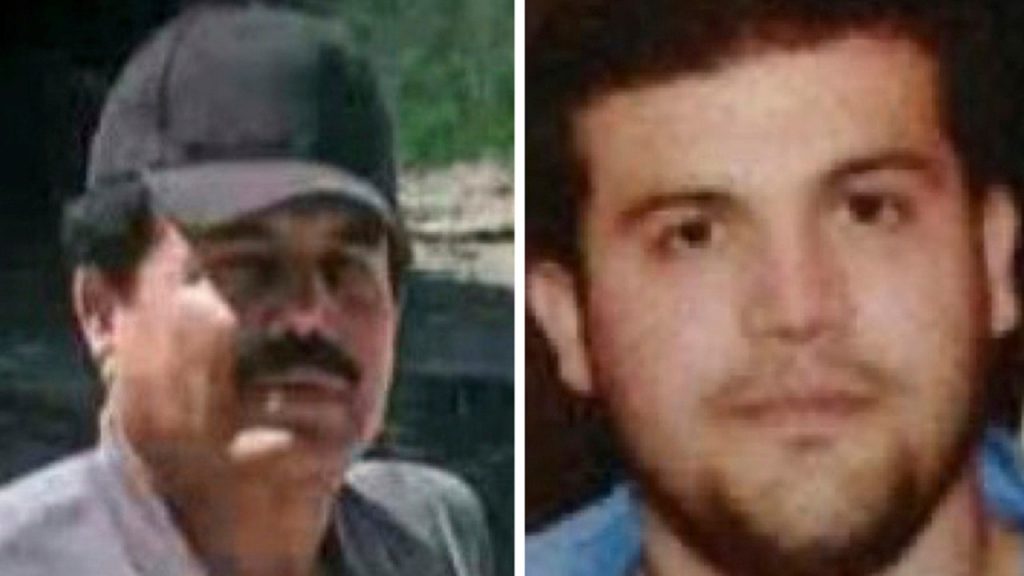Mexican authorities are considering bringing charges against those involved in the abduction of Ismael “El Mayo” Zambada Garcia, the co-founder of the Sinaloa Cartel, who was handed over to the U.S. last month. U.S. officials announced that Zambada Garcia was apprehended in El Paso, Texas, alongside Joaquín Guzmán López, the son of the cartel’s other co-founder, Joaquin “El Chapo” Guzman. Mexican prosecutors are considering treason charges against Guzmán López and others involved in the abduction, despite the significance of capturing Zambada Garcia, who has led a cartel responsible for violence and terror in Mexico for decades.
The Mexican attorney general’s office has opened a criminal investigation into several possible crimes, including illegal flight, illicit use of airports, immigration and customs violations, kidnapping, treason, and other offenses. The response to the apprehension is based on Mexico’s penal code, which allows for prison sentences of up to 40 years for treason. Mexican President Andrés Manuel López Obrador has questioned the U.S. policy of detaining drug cartel leaders, asking why it has not changed. The country’s penal code also includes a clause related to treason involving the illegal abduction of a person in Mexico to hand them over to authorities in another country.
Zambada Garcia’s lawyer released a letter from his client claiming that he was ambushed and kidnapped while believing he was meeting with the governor of Sinaloa. Zambada Garcia alleged that he was taken against his will to the U.S. He also claimed that Guzmán López lured him to a meeting with local politicians but instead had him abducted and taken to a landing strip before being forced onto a plane bound for U.S. soil. The letter raised concerns about possible links between Sinaloa politicians and drug traffickers, which Gov. Richa Moya denied, stating he was not in Sinaloa on the day of the abduction.
Zambada Garcia has been charged in multiple U.S. cases, including one in February in the Eastern District of New York accusing him of conspiring to manufacture and distribute fentanyl. Prosecutors have described him as leading “one of the most violent and powerful drug trafficking organizations in the world.” Now that Zambada Garcia is in custody, there are concerns that powerful figures in Mexico may fear that he could cooperate with U.S. authorities and implicate them in collusion with the cartels. This development raises questions about the potential fallout from his capture on both sides of the border.
The clauses involved in this case were added in response to the abduction of Mexican doctor Humberto Machaín in 1990, who was handed over to the U.S. for his alleged involvement in the torture and murder of Drug Enforcement Administration (DEA) agent Kiki Camarena. President López Obrador has raised questions about the U.S. policy of detaining cartel leaders, sparking further debate on the issue. The attorney general’s office has taken over the case from Sinaloa state prosecutors, signaling the seriousness of the allegations and the potential impact of the situation. Experts warn that Zambada Garcia’s capture could result in significant implications for Mexico, as concerns about cooperation with U.S. authorities may lead to revelations about connections between cartels and powerful figures in the country.
In conclusion, the abduction and extradition of Ismael “El Mayo” Zambada Garcia, one of the co-founders of the Sinaloa Cartel, to the U.S. have raised concerns and sparked debate in Mexico. While the capture of Zambada Garcia is significant in the fight against cartel violence and drug trafficking, the circumstances surrounding his apprehension have led to questions of treason and potential collaboration between politicians and criminals. The case highlights the complexities of addressing organized crime and the challenges faced by both Mexican and U.S. authorities in dealing with powerful drug cartels. The aftermath of Zambada Garcia’s capture may have far-reaching consequences for both countries, as he could potentially provide information that implicates other individuals in his criminal activities. As the legal proceedings unfold, the impact of this case on Mexico’s political landscape and the fight against drug cartels remains to be seen.


